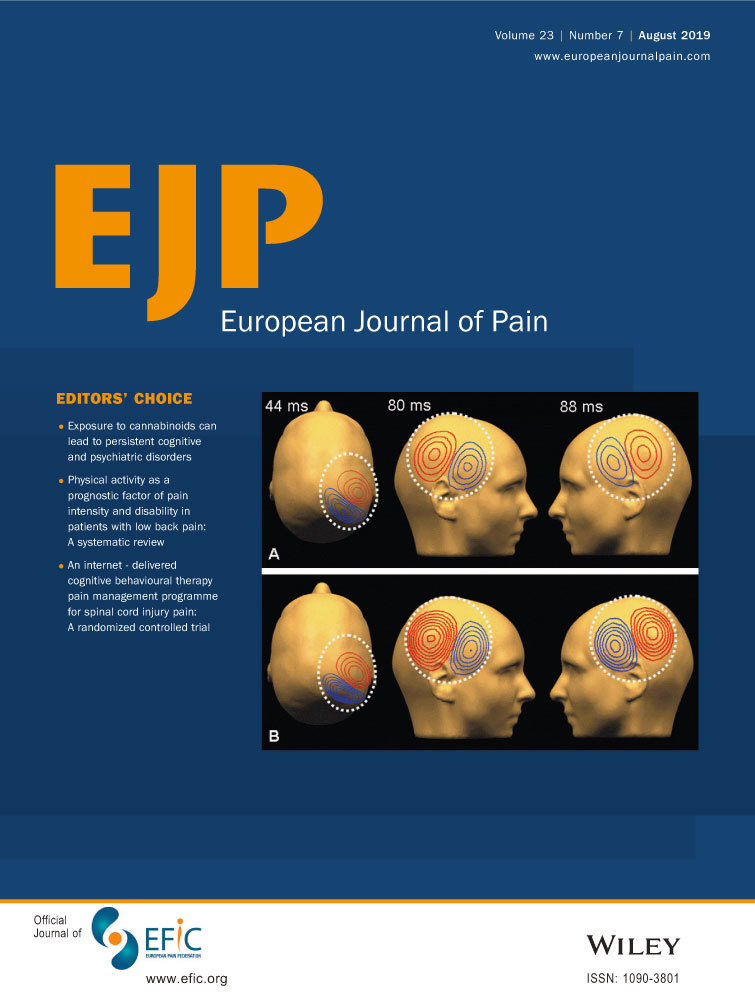Health-related quality of life change in patients treated at a multidisciplinary pain clinic
Funding information
The study was funded by the Finnish Medical Foundation, the Finnish Association for the Study of Pain and the Helsinki University Hospital Research Funds (TYH2014214, Y102011092). The study sponsors had no role in the study design and the study was carried out independently from the sponsors.
Abstract
Background
Multidisciplinary pain management (MPM) is a generally accepted method for treating chronic pain, but heterogeneous outcome measures provide only limited conclusions concerning its effectiveness. Therefore, further studies on the effectiveness of MPM are needed to identify subgroups of patients who benefit, or do not benefit, from these interventions. Our aim was to analyse health-related quality of life (HRQoL) changes after MPM and to identify factors associated with treatment outcomes.
Methods
We carried out a real world observational follow-up study of chronic pain patients referred to a tertiary multidisciplinary outpatient pain clinic to describe, using the validated HRQoL instrument 15D, the HRQoL change after MPM and to identify factors associated with this change. 1,043 patients responded to the 15D HRQoL questionnaire at baseline and 12 months after the start of treatment. Background data were collected from the pre-admission questionnaire of the pain clinic.
Results
Fifty-three percent of the patients reported a clinically important improvement and, of these, 81% had a major improvement. Thirty-five percent reported a clinically important deterioration, and 12% had no change in HRQoL. Binary logistic regression analysis revealed that major improvement was positively associated with shorter duration of pain (<3 years), worse baseline HRQoL, higher education levels and being employed.
Conclusions
The majority of the patients reported significant HRQoL improvement after multidisciplinary pain management. Better understanding of the factors associated with treatment outcomes is needed to meet the needs of those who had unfavourable outcomes.
Significance
Multidisciplinary pain management (MPM) increases the health-related quality of life (HRQoL) in most patients. More research into factors associated with HRQoL change is needed to understand why not all patients benefit from MPM and how MPM approaches could be improved to meet the needs of these patients.
CONFLICT OF INTEREST
H. Sintonen is the developer of the 15D and reports royalties from electronic versions of the 15D, outside the submitted work; the other authors report no other conflicts of interest that may have affected the work.
The Ethics Committee of the Helsinki University Hospital approved the study (decision no. 182/13/03/02/2009). The study was registered at the Helsinki and Uusimaa Hospital District Clinical Trials Registry, number HUS2071.




